EMBODIMENTS
notes taken from our meeting on the 01/05/20
18:44:50 From Ese Onojeruo : www.rosajohanuddoh.com
18:44:57 From amybik-yingleung : thank you!
18:46:00 From Ese Onojeruo : https://www.youtube.com/watch?v=YMtsodcAsVU
Olivia Barnett-Naghshineh : https://www.rosajohanuddoh.com/black-poirot
18:57:46 From Cherellle S : Gotta run!! Lovely to see you all! xox
19:06:01 From Ese Onojeruo : Black Visual Intonation
19:06:28 From Ese Onojeruo : ’Black people tend to create notes that are inherently semi-stable sonic phenomena. There's no such thing as a pure A-sharp or B-flat. It's actually always vibrating. Vibration is the basis of the idea of Black Visual Intonation. I’ve been developing a system whereby you can take motion in cinema and manipulate it in accordance with these cultural presuppositions of Black vocal intonation.’ - Arthur Jafa in conversation with Han Ulrich Obrist (2016)
19:10:01 From Ufuoma Essi : Terry Adkins
19:10:27 From Jessica Ashman : Theaster Gates - https://www.theastergates.com/
19:11:26 From Jessica Ashman : Theaster gates music group - https://www.theastergates.com/project-items/the-black-monks - based around gospel, blues wailing and spirituals
19:13:40 From Ufuoma Essi : https://www.youtube.com/watch?v=pZnXZlCpNpQ
19:19:23 From Olivia Barnett-Naghshineh : Asher Gamedze - jazz, music, revolution-epistemologies of Black music
19:22:25 From Jessica Ashman : https://twitter.com/thewhitepube/status/1231902251263897602?s=20
19:22:35 From Olivia Barnett-Naghshineh : Josephine Baker?
19:30:13 From Jessica Ashman : https://www.pamelaphatsimosunstrum.com/
19:34:05 From Olivia Barnett-Naghshineh : https://www.tiwani.co.uk/artists/40-pamela-phatsimo-sunstrum/
19:48:58 From Leah Morris : https://larissasansour.com/In-Vitro-2019
19:49:27 From Leah Morris : For Olivia ^
19:52:00 From Davinia Robinson : https://vimeo.com/rabzlan
19:56:44 From shamicaruddock : Kindling Aurora Levins Morales
20:03:50 From shamicaruddock : hauntology
20:04:56 From Olivia Barnett-Naghshineh : https://www.jstor.org/stable/10.1525/fq.2012.66.1.16?seq=1#metadata_info_tab_contents 20:06:30 From Olivia Barnett-Naghshineh : Journey in Satchidanada
20:08:47 From Olivia Barnett-Naghshineh : Woman on the edge of time
20:14:47 From Davinia Robinson : Cludia Rankin- Citizen
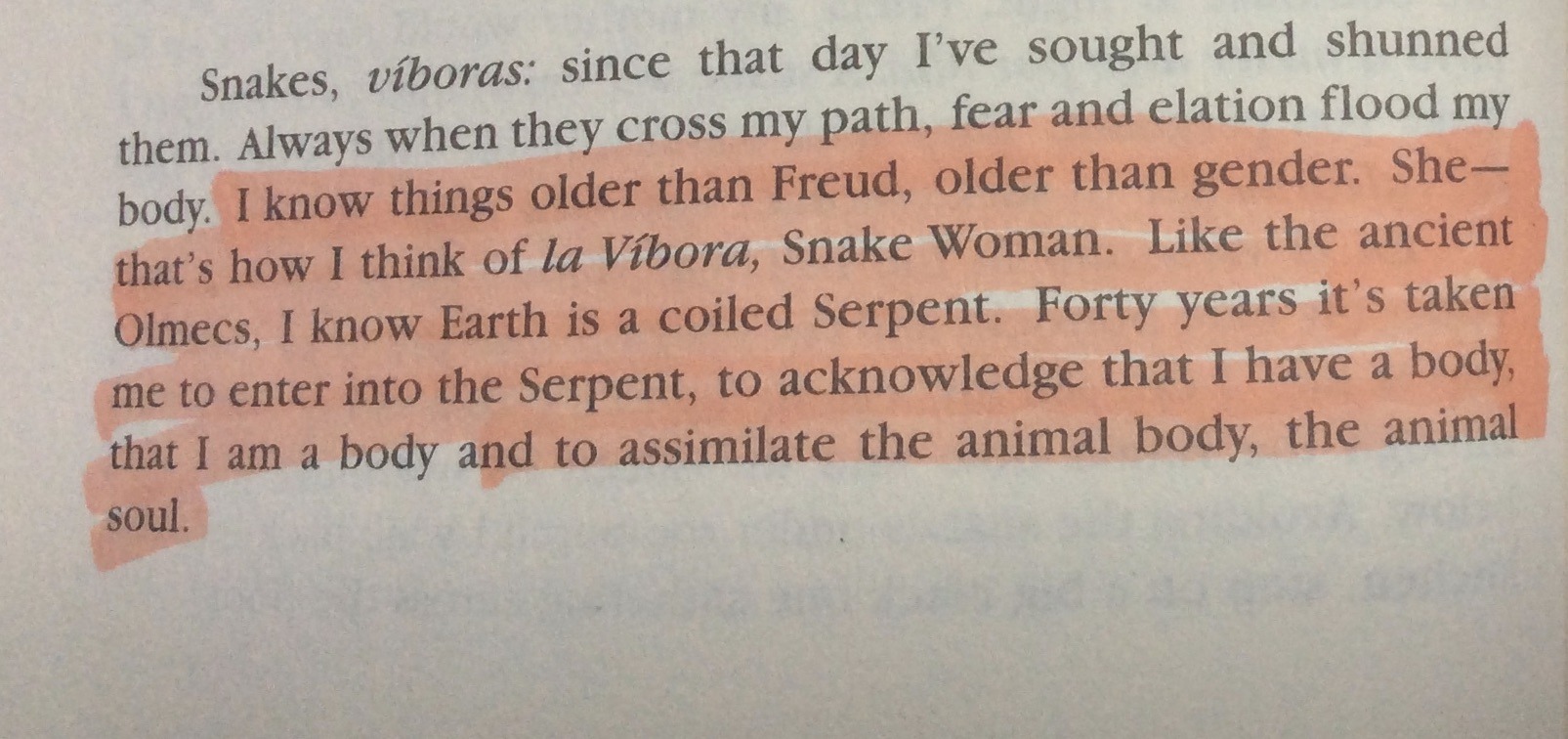
Extract taken from Gloria Anzaldua’s Borderlands La Frontera, where she speaks of her experiences as a Chicana Lesbian, being impressed by the impact of existing in a border terra, land taken from her indigenous Indian Chicano folke, where the earth was ravaged by big American businesses, vegetation and indigenous knowledge of the land cleared and Western patriarchal structures manoeuvred to manipulate the readings of the Azteca-Mexica Goddess’s to disenfranchise and tame Chicano cultural female presence.
(Davinia)
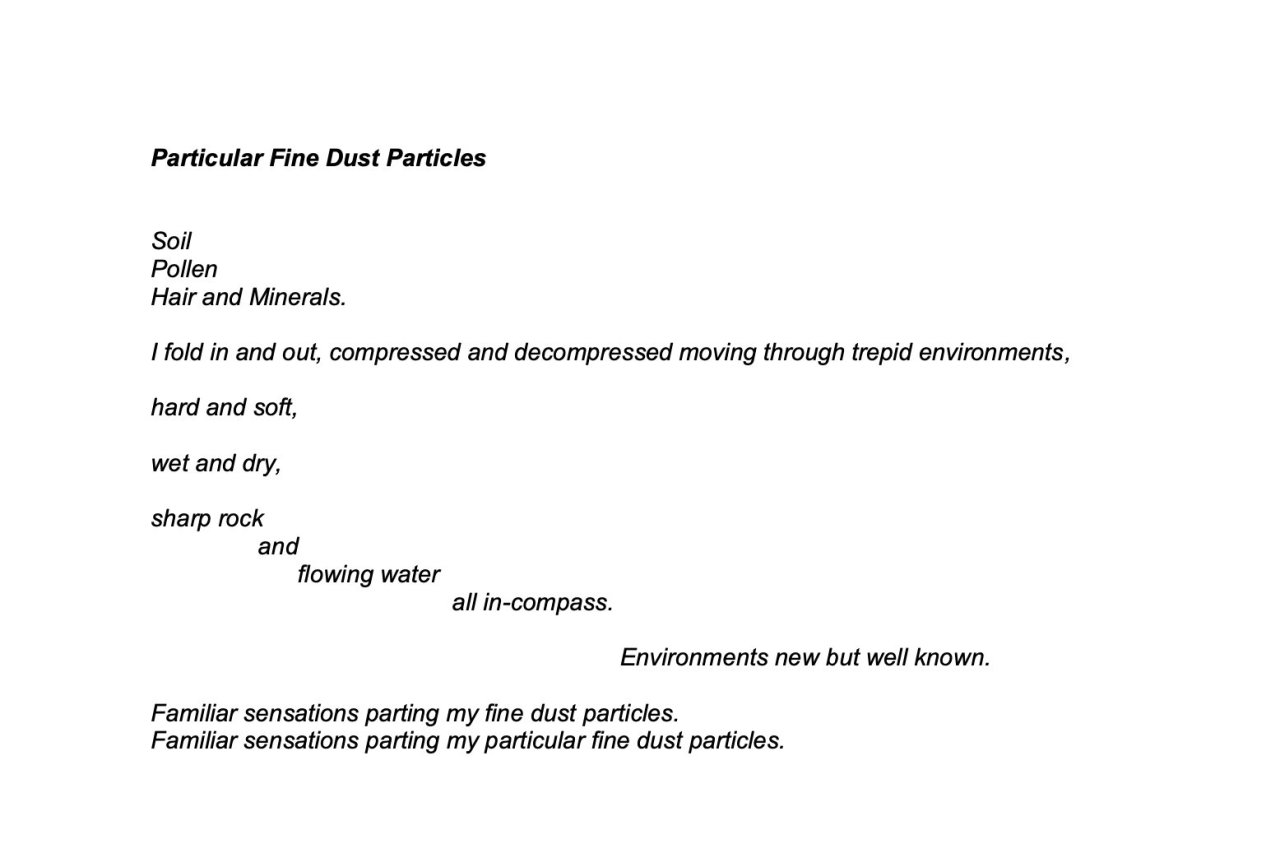
Poem written by Davinia-Ann Robinson
During the last six months the research and making aspects of my practice has begun to engage with ecology. Initially exploring my own connection to land and space I now turn my gaze outwards examining relationships between indigenous people of colour and their lands and non-indigenous people of colour who reside in lands that we are not native too. My initial research focused heavily on presence, movement, displacement and violent jesters, which examined the relationship between body and earth and how they are conceived as separate within a colonial framework and my own experience of connection between body and earth as a whole identity. More recently I have incorporated exploring presencing for bodies of colour and Western cultural emotions towards gendered and raced bodies of colour.
The above creative non-fiction poem is one of a series I have written, exploring moments of having my presence questioned as a Women Of Colour in various everyday locations across the world and the impact these experiences have on preventing me to enact presencing. I am interested in developing a narrative where the connection between my embodiment as a sentient being is intwined with other natural matter such as soil, earth, dust, pollen which also co-exists in these environments, and where the imperial structures trying to disable my presence whether that be an individual or institution are also indistinguishable from the environments depicted. Through my exploration of this I hope to examine relationships between my body, earth, belonging and the colonial impressions bodies of colour can repair from feeling a connection with the surrounding environment.
(Davinia)
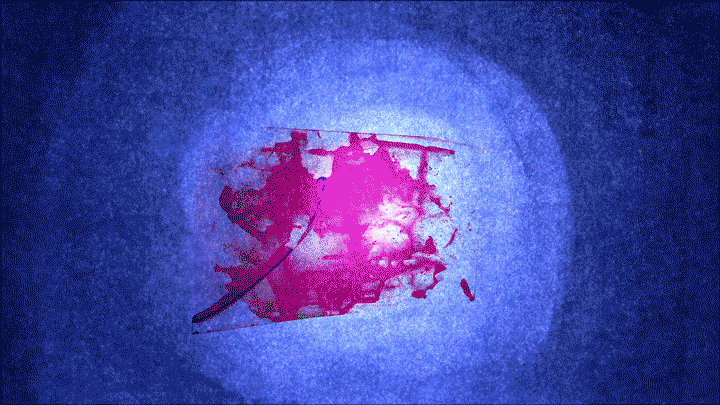
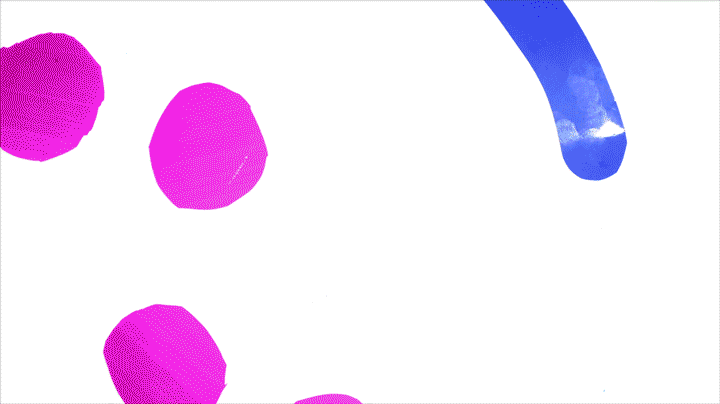
Quick tests under the multi-plane, exploring patterns of resistance, repetitive (unhealthy!) behaviours and generally thinking about ideas of control.
~Jess
‘Source’ (2016) by Daniella Yohannes. Part of her ‘Inner Visions’ body of work.
x
12:38:39 From amybik-yingleung :
https://www.botanicalmind.online
12:41:43 From Ufuoma Essi : Atlantics
12:41:55 From Ufuoma Essi : Mati Diop
12:41:59 From Ufuoma Essi :
https://lwlies.com/articles/atlantics-and-the-transformative-power-of-water/
12:45:10 From jadeonojeruo : ideologies
12:46:07 From Davinia Robinson : Veronica Strang- Essay conceptual Relations: Water Ideologies and Theoretical Subversions
12:54:35 From Jessica Ashman :
https://www.theguardian.com/books/2019/jan/08/not-working-why-we-have-to-stop-by-josh-cohen-review
12:59:41 From Ufuoma Essi : Sarah Maldoror
12:59:52 From Ufuoma Essi :
https://www.youtube.com/watch?v=Nugl_eZyhTg
13:01:31 From jadeonojeruo : Second Skin: Josephine Baker & the Modern Surface
13:01:44 From jadeonojeruo : Cutting a Figure: Fashioning Black Portraiture
13:11:51 From Jessica Ashman :
https://www.goodreads.com/en/book/show/25265729-black-quantum-futurism
13:18:44 From Olivia Barnett-Naghshineh : What was the name of the film collective?
13:21:16 From Davinia Robinson : Karrabing Film Collective
13:22:01 From Davinia Robinson :
https://www.youtube.com/watch?v=kOnDyRSc3r8
13:23:14 From Olivia Barnett-Naghshineh : Elizabeth Povinelli
13:23:28 From Olivia Barnett-Naghshineh : she got invited by them to work with them i think, but she had been doing research with for a long time
13:23:33 From Olivia Barnett-Naghshineh : she is a big time bad ass theorist
13:23:39 From Olivia Barnett-Naghshineh : but i find her work a bit hard to read
13:23:41 From Olivia Barnett-Naghshineh : but very radical
13:27:40 From Olivia Barnett-Naghshineh : linda tuhiwai smith
13:27:51 From Olivia Barnett-Naghshineh : tuhi-wai smith
13:28:08 From Davinia Robinson : Book= Decolinzing Methodologies
13:32:30 From Jessica Ashman : https://hotglue.me/
13:33:57 From Jessica Ashman : https://researchrelations.hotglue.me/
13:34:02 From Olivia Barnett-Naghshineh :
https://padlet.com/oliviabarnett8838/ghftslqgjiy4
13:38:43 From Olivia Barnett-Naghshineh : im listening but gonna switch off screen for a sec
13:40:06 From Olivia Barnett-Naghshineh : Yes agree with Jess -
13:40:11 From Olivia Barnett-Naghshineh : little tasters
13:40:58 From Olivia Barnett-Naghshineh : iv got some random things id quite like to put up
13:49:25 From Olivia Barnett-Naghshineh : Saidiya Hartman
13:49:36 From Olivia Barnett-Naghshineh : lose your mother - has anyone read this?
13:50:25 From Davinia Robinson :
http://www.lahf.org.uk/attachment-arts-conference-relational-human-body-–-10-july-2020
13:55:51 From shamr : Mama Day
13:55:59 From shamr : Children of Blood and Bone
13:57:27 From Davinia Robinson : Octavia Butler - Parable of the Sower/ Parable of the Tenants
13:57:48 From Jessica Ashman : Octavia Butler - Kindred
14:00:30 From amybik-yingleung : we are here because you were there
14:00:32 From amybik-yingleung : Ambalavaner Sivanandan
NOTES FROM ZOOM MEETING - 16/05/20
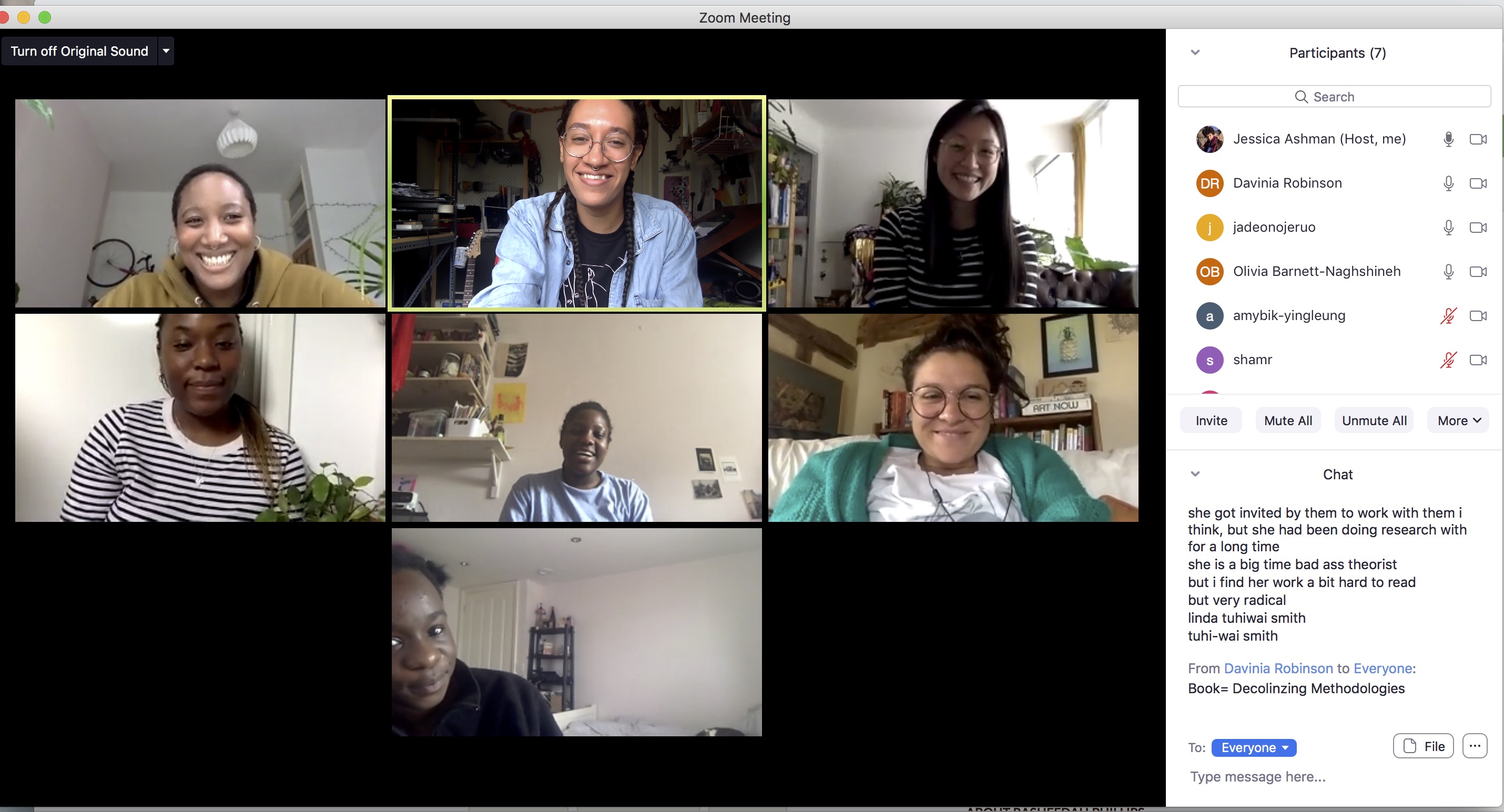




Words taken from Marge Piercy’s Science Fiction Novel, Women On The Edge Of Time. Over the last few weeks Marge’s words have resinated with me, her story telling interweaves human relationships with one another and the environment which surrounds us. Set in the 1970′s and in the future, the 1970′s life Marge depicts explores the structures which prevent agency for women of colour in health and social services, employment, education and the power dynamics between family members who are able to / wish to adapt to Western codes of presenting while one of the possible future worlds Marge shows us speaks of a space where Western conceptions of age, gender, ethnicity and human relationships to plant and animal life are re-evaluated, to create small communities of individuals related not by genealogy, but of commitment to parent and care, who work with the seasons of nature to grow crops not using chemicals but an understanding of the land and who approach mental health through a de-stigmatised approach.
(Davinia)
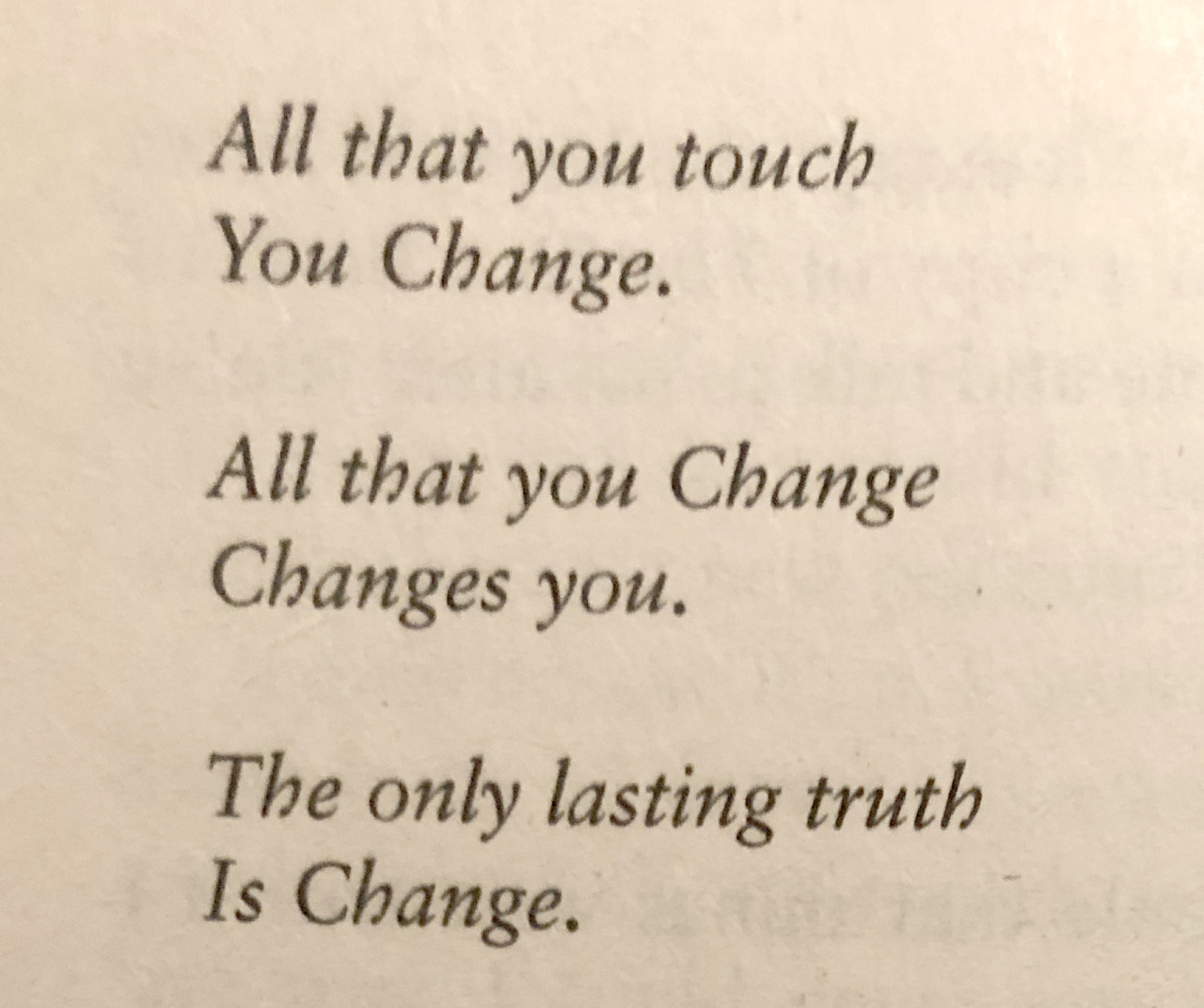
Excerpt of Eathseed verse taken from The Parable of the Talents by Octavia E. Butler.
(Cherelle)
Cradle; to hold, bear weight, support.
An experiment/ work in progress (A Show Of Hands series), 2014-2020, scanned found image.
(Cherelle)
Work in progress (A Show Of Hands series), 2014-2020, scanned found image.
(Cherelle )
Practice 28th May 2020
Duration- 37.50 mins long
Purpose- To create a relaxing sound bath using Himalayan Bowls.
Use headphones and set the volume to a comfortable but fairly loud setting, lie down somewhere you won't be disturbed, close your eyes.
Side note: I'm still a long way off from being a pro- as such its not perfect but I'm getting better, I'm just trying to get as much practice in as I can.
(Cherelle)
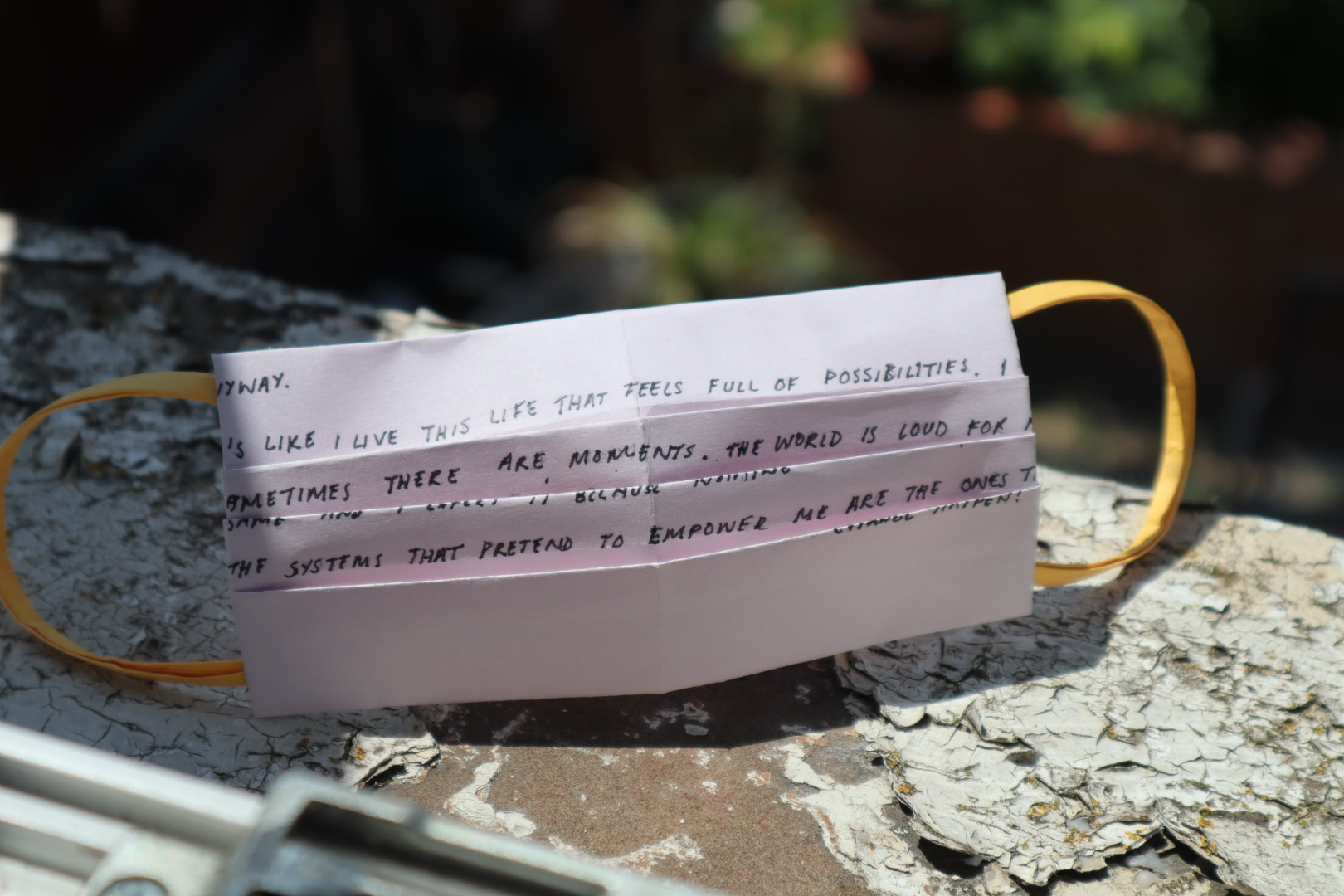
I live in a world that tells me I'm equal to everyone else.
Deep down we know it's not true but we pretend it is anyway.
It's like I live this life that feels full of possibilities. I was always told I can be who I want to be, I can achieve whatever I want to achieve but maybe those words weren't meant for me.
Sometimes there are moments.
The world is loud for a short while and then and then quiet again.
These things happen but they don't surprise me because it's always been the same, and I expect it because nothing has changed.
The systems that pretend to empower me are the ones that oppress.
Can we stop pretending and make actual change happen?
Leah 01/06/20
Notes from zoom meeting - 30/05/20
12:49:02 From Davinia Robinson : The Colour Of Madness- Book
12:49:39 From Davinia Robinson : https://viviancaccuri.net
12:49:49 From Davinia Robinson : Artist who uses sound
12:53:16 From Olivia Barnett-Naghshineh : bluets maggie nelson
13:00:34 From Davinia Robinson : The Happy Object- Sara Ahmed
13:12:22 From Davinia Robinson : https://recorderfilm.com
13:13:05 From Ufuoma Essi : Marion Stokes
13:14:31 From Davinia Robinson : Diamond stingily love diamond
Finding this body
its shadows growing
You are being
gently removed,
fiercely lured
here
By one with
plastic flowers for a soul
Has a way with many words,
breaks bodies after death
Forming the thought:
"I thought I woke up, but I didn't actually wake up"
Lyrics from Dirt Nap by Cross Record on the album, Be Good, released August 1, 2012
Untitled gif, 2016
(Cherelle)
Narration Group is a collective of Women and Non-Binary people of colour who usually meet fortnightly at The South London Gallery, but currently meet online via zoom. We are centred on understanding and unpicking the intersectional forms of discrimination which people of colour encounter, and how to collectively and critically engage with these experiences to reconstruct and re-articulate our own narratives.
This website documents our third research project entitled Embodiments. In this we explore the way our bodies hold histories, how these histories are pressed upon us and how we can corporeally connect with the past, present and future. We come into contact with the memories of our own and others through objects and the sensory: sounds, feelings, vision, touch and taste. Through these modes, we explore ways of connecting Black and Brown bodies across time and space while exploring the relationships we have with ourselves and others in personal, physical and intimate ways.
(Davinia)
Books chosen by Amy:
Yellow Peril!
An Archive of Anti-Asian Fear
ed. John Kuo Wei Then and Dylan Yeats
Why do we fear the yellow Asian so much? This is the first time I’ve come across a book based on historical and wide spread perceptions of East Asians in film, pop culture and media. I’ve only dipped a little into it, but the Western born concept of East Asians as either savage or evil genius, both characters intent on harming and dismantling Western civilisation rings true - especially in this current climate. It is sadly indicative that not much has shocked me in the book so far, the depictions of Others as less civilised being so deeply ingrained in our Western perceptions and exacerbated by the contemporary media we consume.
Beyond the Pale
White Women, Racism and History
by Vron Ware
Ware writes from the perspective of a white, female academic living and working from the time of the Women’s Liberation Movement to present day. Her account tracks the complex, shifting relationship between white women and racism and how a white patriarchy manipulates both in their own agenda. It reviews the connections between feminists and although it hasn’t initially connected to my position as a woman of colour, it’s providing a wider context of where the feminist agenda and how groups of women and non binary people operate within a context which is stacked against them.
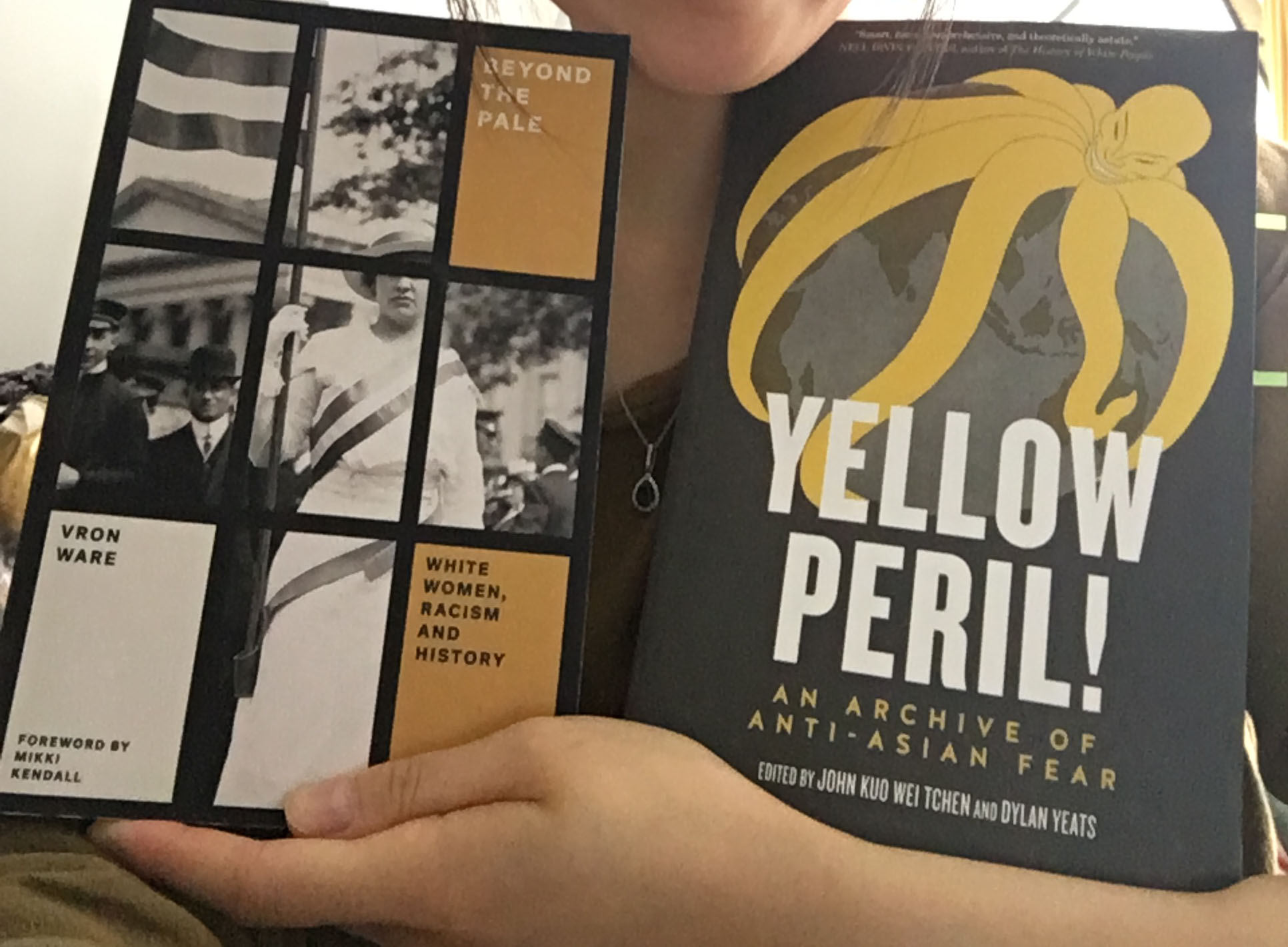
In December 2019 I began to revisit sites where I had encountered disruptions in presencing throughout my childhood and in recent adult years, these included my old school grounds in Wolverhampton and areas which I frequent everyday living in Southeast London. The act of collecting earth from these sites opened up an investigation into my connection to these environments as a non-Indigenous female body of colour and the residue of societal colonial emotions I encountered.
Experimenting using collected earth as raw material in sculptural pieces, last week I transformed some collected earth into pigments, which I then used to pigment wax, producing test casts of my thumbs. The above images document this process. Alongside this I am currently researching native plants that exist in spaces that I have inhabited and experienced having my presence questioned and native plants which exist in spaces which provide an environment where I am able to enact presencing. Plants include local vegetation in areas of Australia, where I lived for a year, such as the Doodia Rough Ruby Fern and local weeds I walk past everyday in Southeast London. I am also interested in exploring house plants, which are not native to the environment they exist in, but which I co-exist with in my home. I plan to incorporate these plants into my art practice along with the pigments made of earth.
(Davinia)
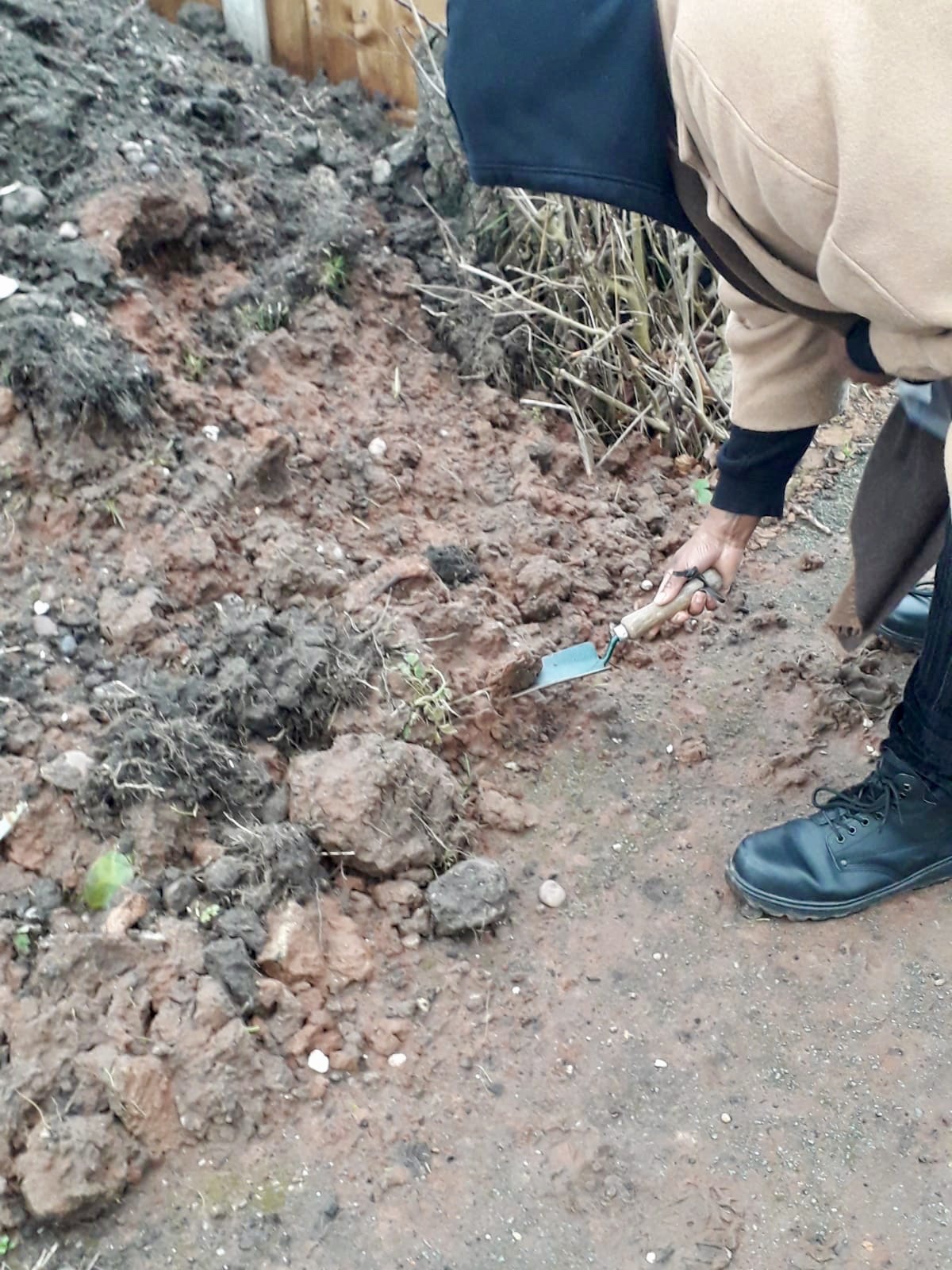
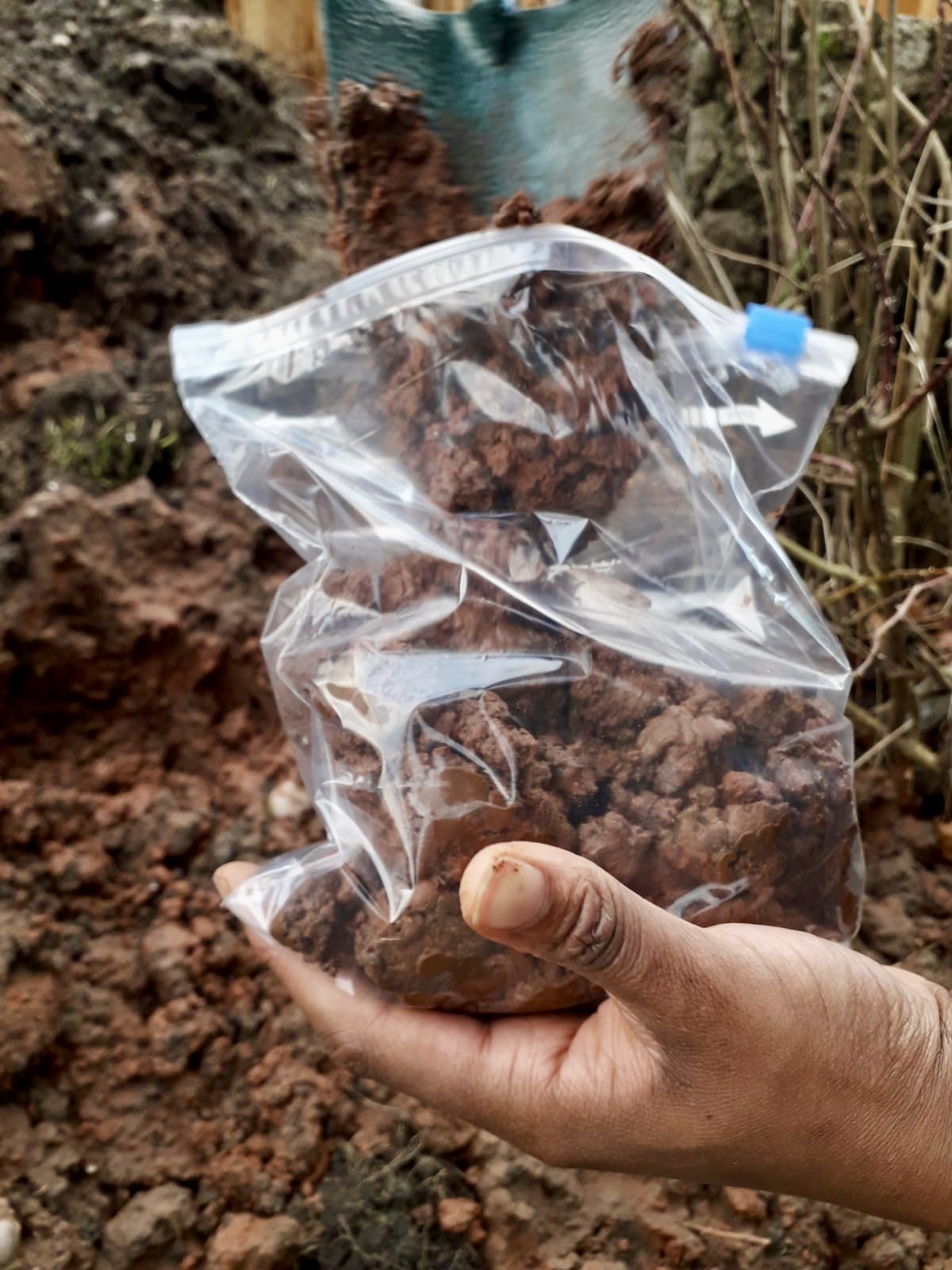
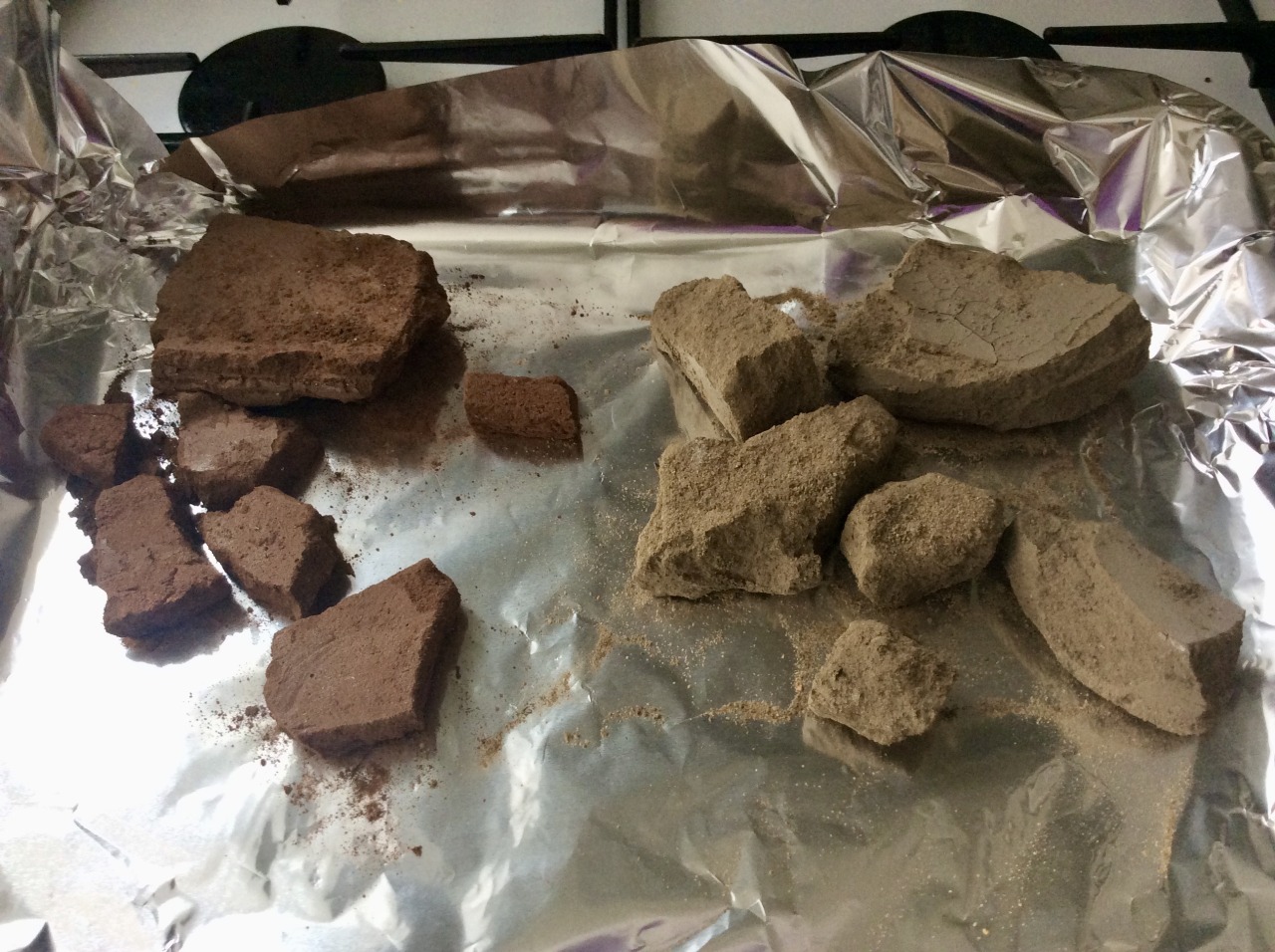
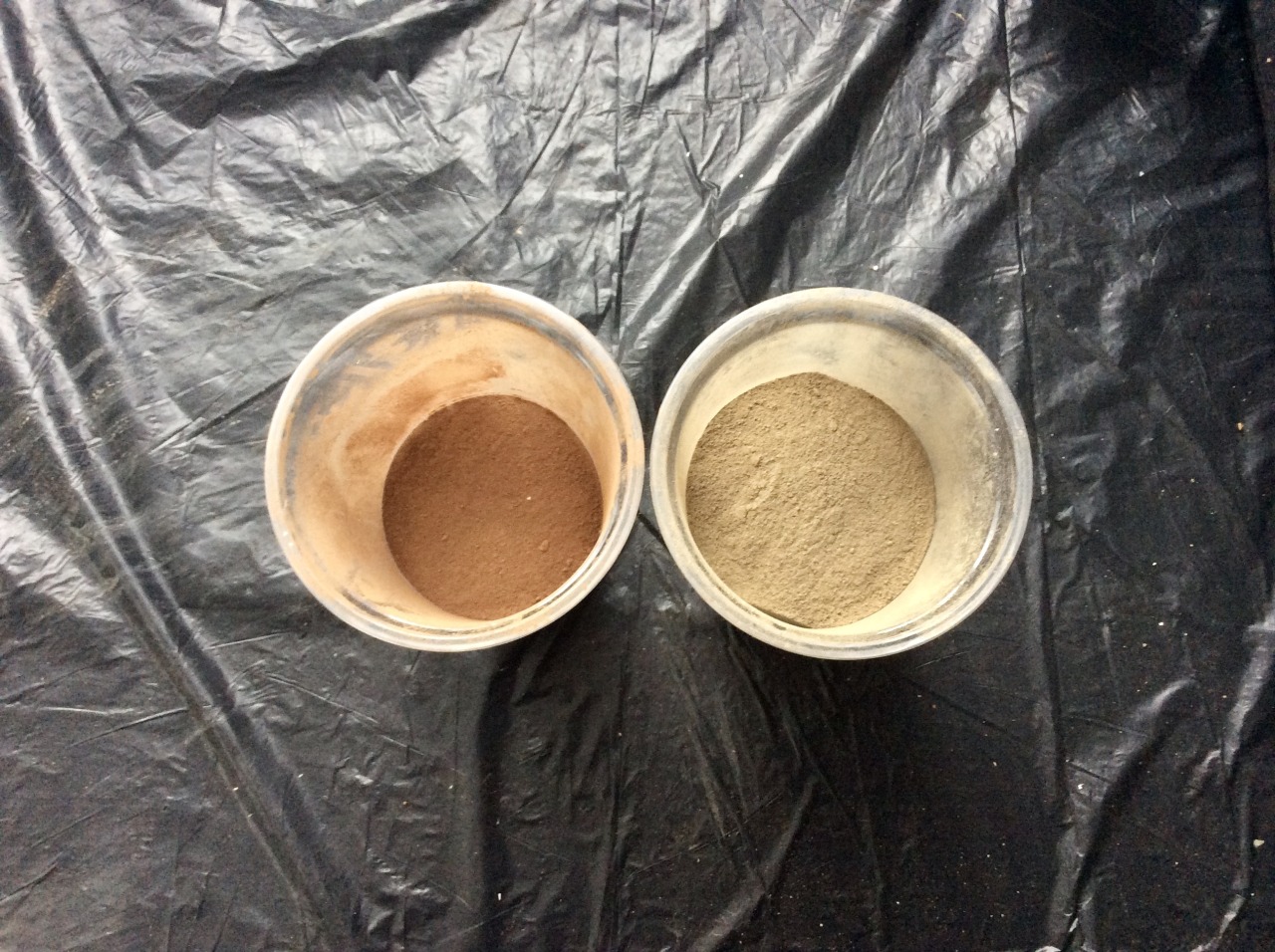
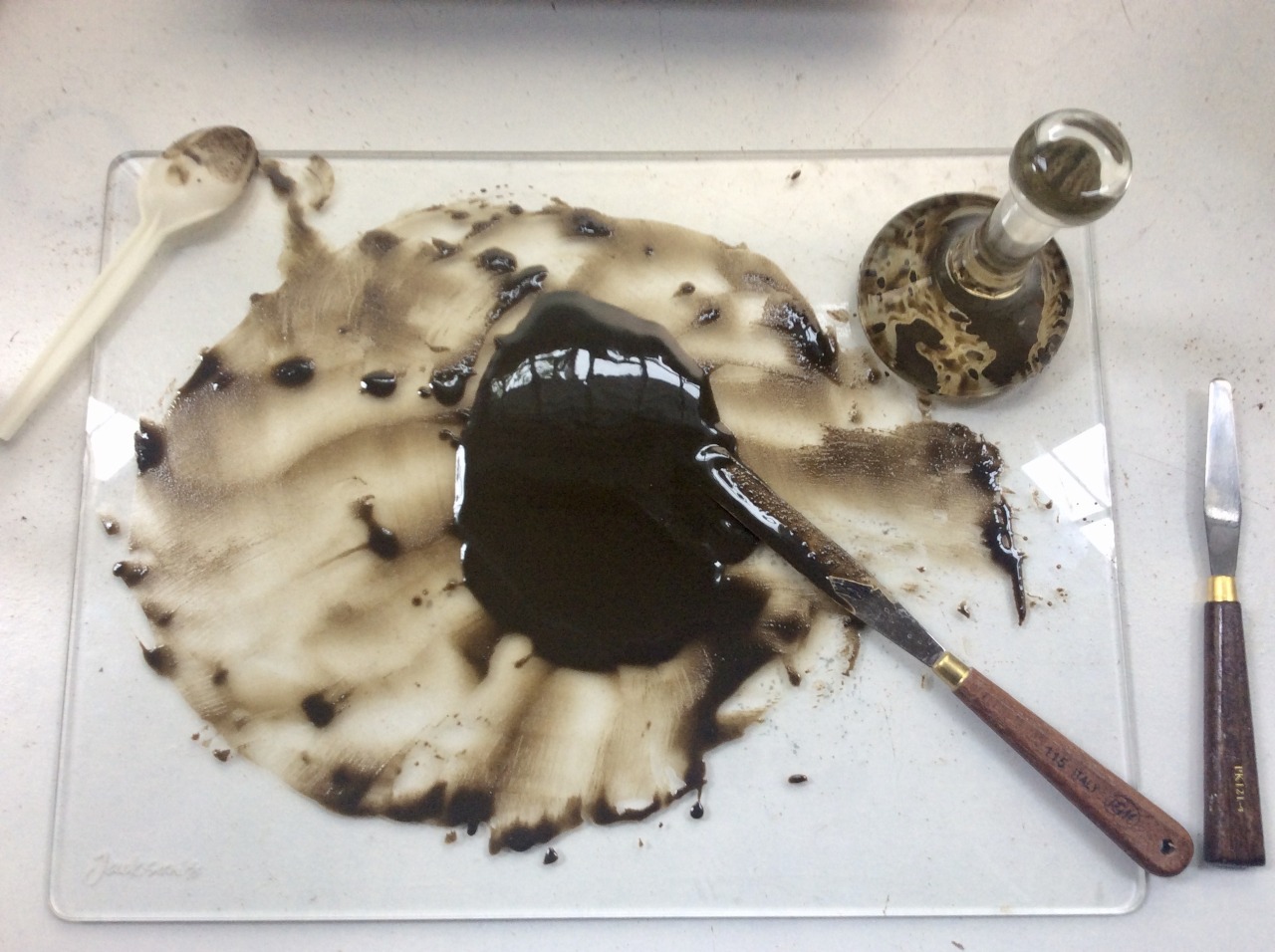
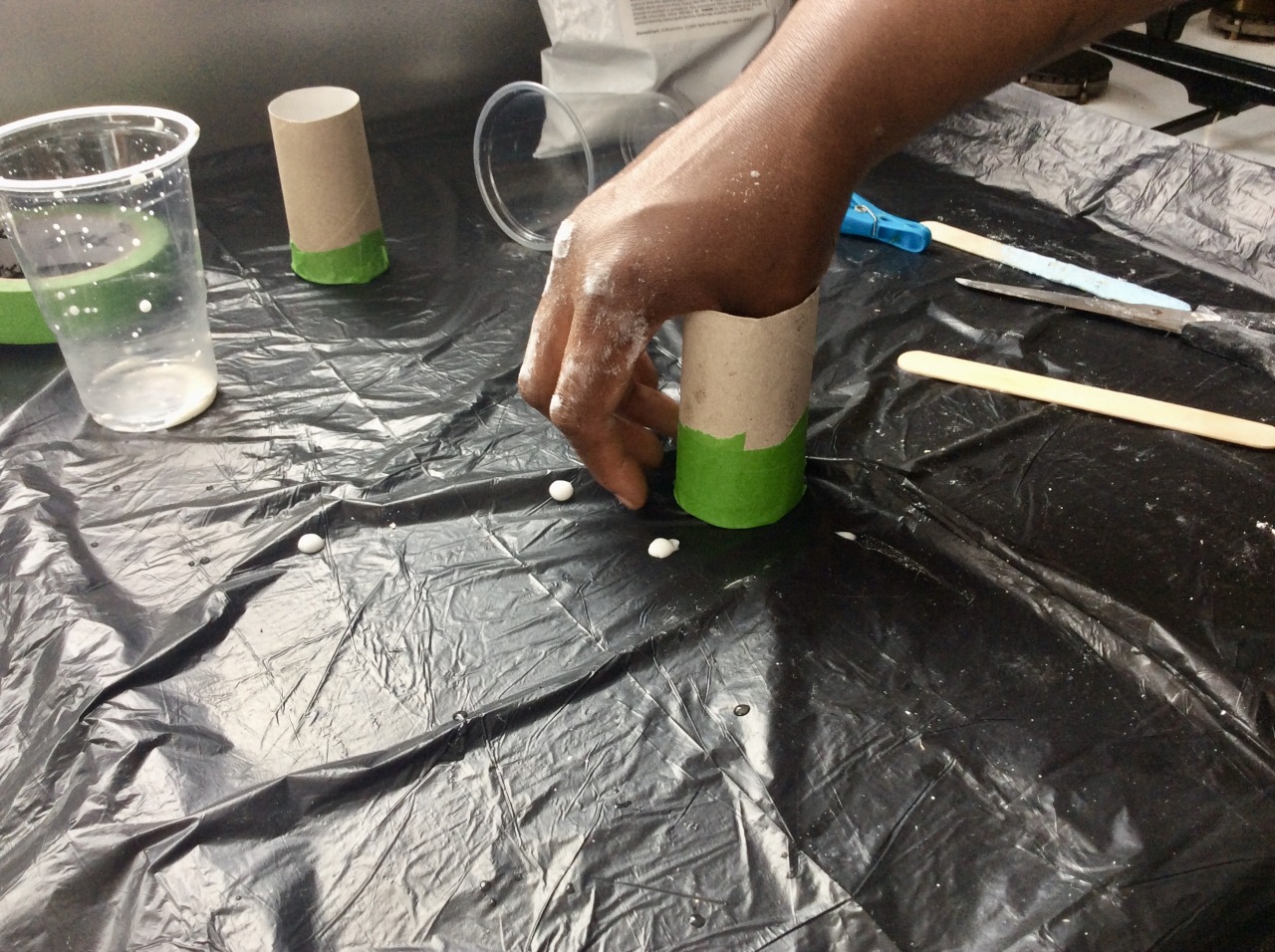
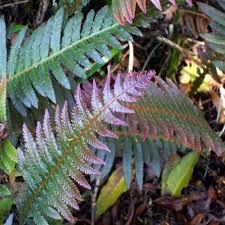
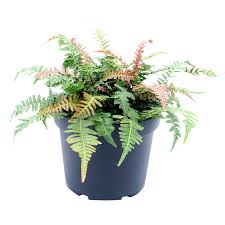
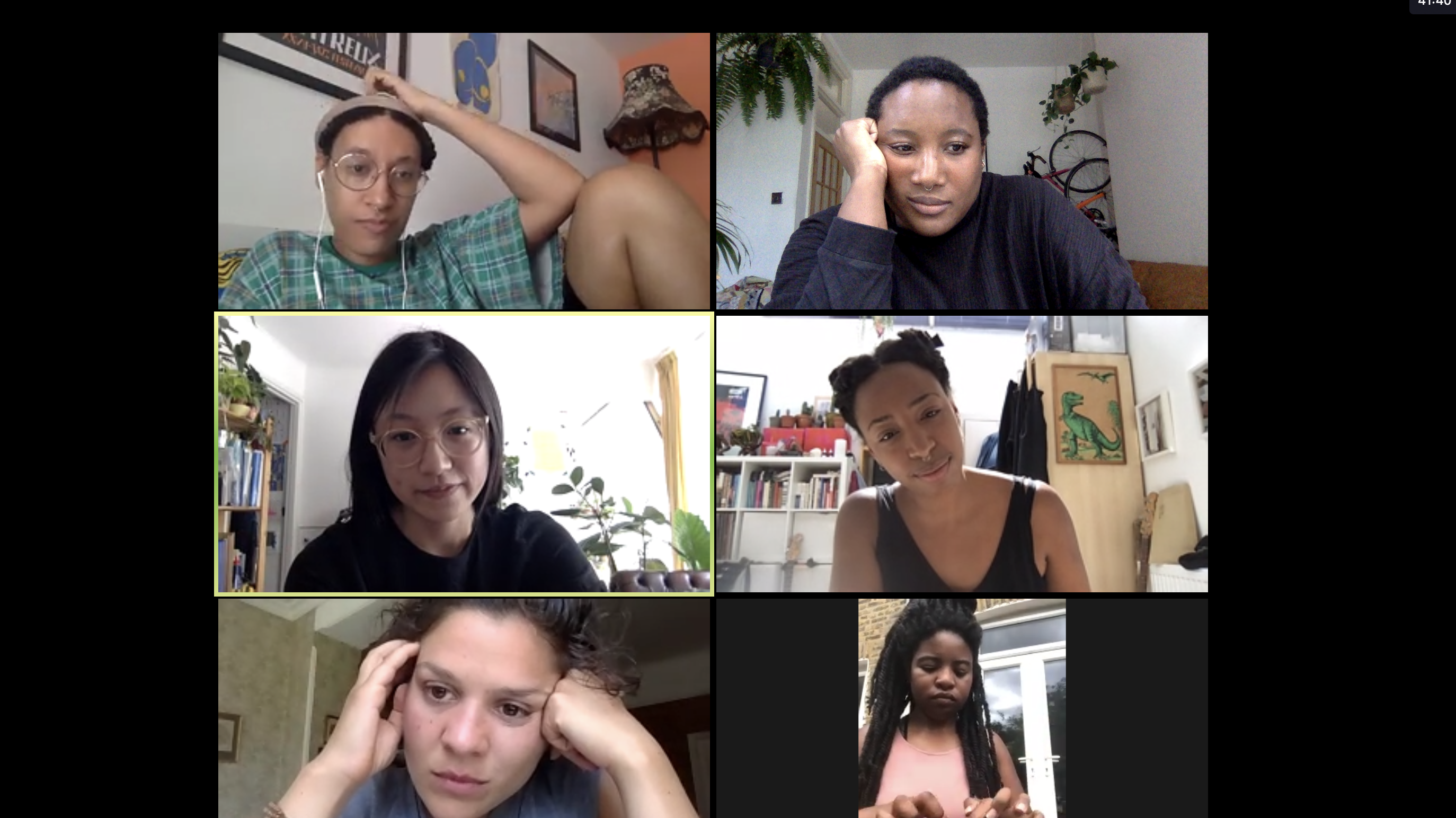
Notes From Meeting On The 14/06/20
13:19:23 From Olivia Barnett-Naghshineh : im listening but gonna do some stuff at the same time and switch off video
13:23:28 From Olivia Barnett-Naghshineh : i dont rly like social media :/
13:23:40 From Olivia Barnett-Naghshineh : but happy to do something if we all need to :)
13:24:15 From Olivia Barnett-Naghshineh : Exactly!
13:24:26 From Olivia Barnett-Naghshineh : we sort of have to curate multiple versions of ourselves online
13:25:00 From Olivia Barnett-Naghshineh : haha thumbs up
13:25:42 From Olivia Barnett-Naghshineh : can we be an amorphouse collective with images that give a sense of ourselves?
13:26:06 From Olivia Barnett-Naghshineh : yeh i like that
13:29:20 From Olivia Barnett-Naghshineh : So to do list: send books tomorrow and add something to hot glue by Monday?
13:29:23 From Olivia Barnett-Naghshineh : 2 books??
13:29:55 From Olivia Barnett-Naghshineh : Then that becomes our group library?
13:30:03 From Olivia Barnett-Naghshineh : e.g. could we get a copy of bluets for the library?
13:30:06 From Olivia Barnett-Naghshineh : Oh!
13:30:10 From Olivia Barnett-Naghshineh : :) wow gifts
13:31:29 From Olivia Barnett-Naghshineh : It could be nice to all get different things and then we can also share them?
13:31:37 From Olivia Barnett-Naghshineh : and then we do have our own little library even if we individually own them
13:31:47 From amybik-yingleung : https://www.versobooks.com/books/subjects/36-race-amp-ethnicity#browse
13:32:45 From Ufuoma Essi : The Art of Cruelty: A Reckoning by Maggie Nelson is also really good
13:39:06 From amybik-yingleung : https://autograph.org.uk/blog/open-call-2020/ ?
13:41:05 From Olivia Barnett-Naghshineh : i really like the idea of some soundbaths and sound stuff from sham and some audiovisual from ufuoma ??
13:41:10 From Olivia Barnett-Naghshineh : and colours!
13:45:02 From Olivia Barnett-Naghshineh : Eichorn
13:45:07 From Olivia Barnett-Naghshineh : The Archival Turn
13:45:17 From Olivia Barnett-Naghshineh : the chapter is called the Scrapheap
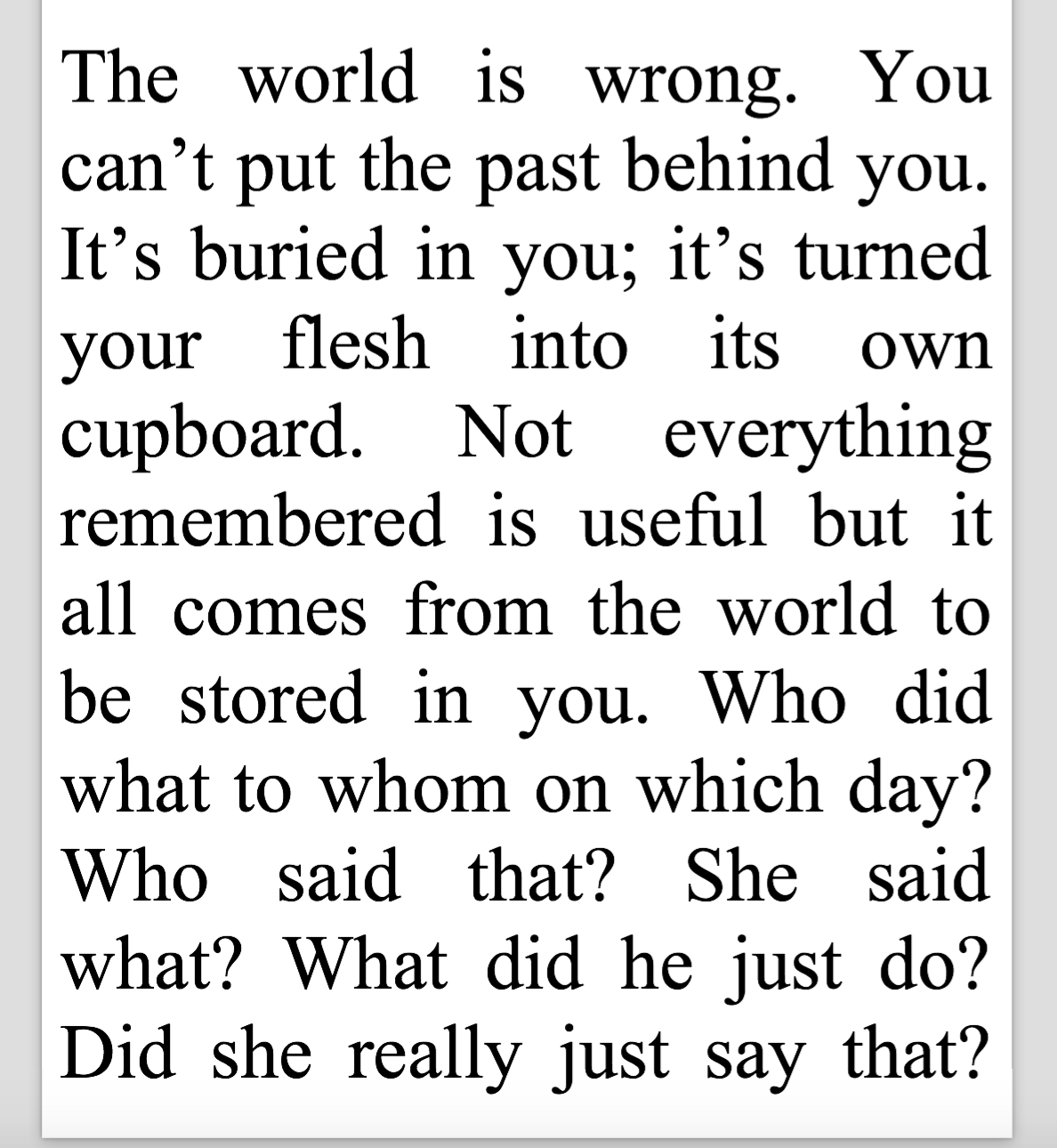
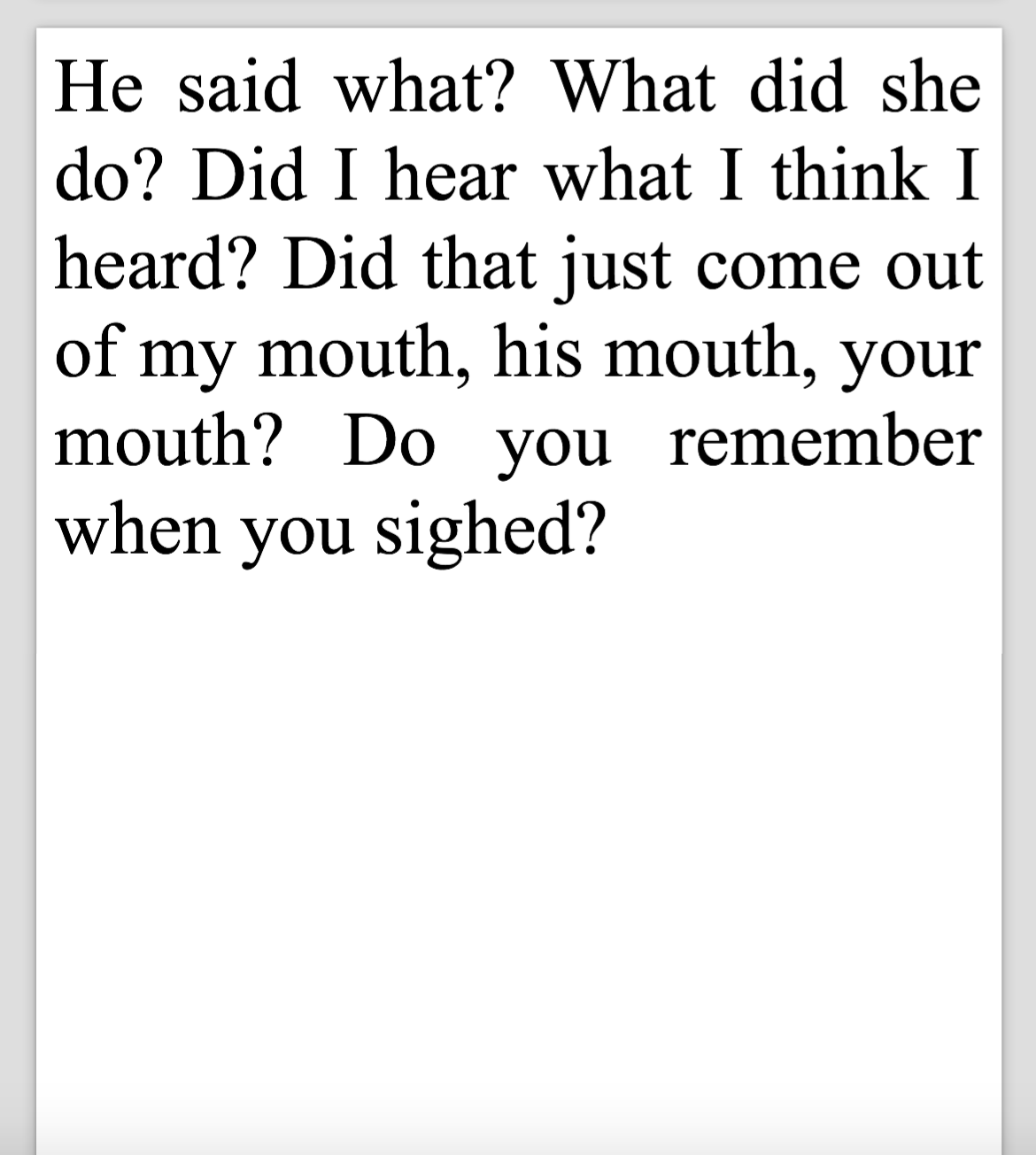
Claudia Rankine’s Citizen resonates with me more than ever. I have been trying to find my own words to articulate how I feel about my position as a British born Chinese citizen in light of Covid-19 and its effect of people’s perceptions of Asian people. I have had more baffling encounters than ever. Most of the time, I am left speechless and I am trying to work through that state of shock through making.
Amy
F E E D B A C K L O O P
(Jessica, 29/6/20)
I have always been inspired by colour, which is ironic because my wardrobe consists of mostly black and grey.
I sometimes find it difficult to express how I'm feeling with words but sometimes explaining with colours makes more sense to me.
It's so interesting how colour can act as another language; how we use it and how it affects us in our surroundings.
I've started reading these two books:
The Colour of Madness, a collection of poetry, art and short stories focusing on mental health in the UK from people of BAME backgrounds.By Samara Linton and Rianna Walcott
And Bluets, an exploration of the colour blue and the use of aesthetic beauty as a tool for repair. By Maggie Nelson.
- Leah
childhood photograph and recent reflections, Amy
Notes taken from our meeting on the 07/07/20
A verse from The Book of the Living, found in Octavia Butler’s Parable of the Talents.
An excerpt from Black Quantum Futurism: Theory & Practice
“The term community signifies on one level a form of social cohesion around values and interests held in common. In terms of ‘public’, there is a diversity of needs and people identify as being part of many groups or communities at one time.” - Tate
How do we interrogate the support we provide to the ‘communities’ we claim to work with (and for)?
Institutions work extensively to support and create access points into the arts for young and underrepresented groups. Under the premise that art and public collections are for everyone, institutions encourage these groups to take up positions in the sector. How ethical is this way of working if the art ecology, in which we are bringing this community into, continues to positions them as outsiders through precarious working conditions such as: traineeships, short /fixed term contract, roles that demand emotional and unpaid labour. Nonetheless, these institutions often isolate and restrict bodies of colour from taken up space, and position them as bodies ‘out of place’. (Sarah Ahmed, A Phenomenology of Whiteness 2014)
intentionally or not, these positions are tools used to signify diversity and inclusion - but how diverse are these practises if, as a trainee, you are not considered a core member of staff; how is this inclusive if your one year contract (as well as your rank) keeps you out of key decisions and revokes your input into the system. When a director is appointed they usually inherent months/ years of previous commitments and programmes before they can actually implement their own ideas. It takes mangers severally months to truly understand the landscape (with all its hidden internal politics), how will a young person (who is quote on quote “disadvantaged”) be able to learn on the job, come up with groundbreaking programmes, figure out how to operate in the political landmine, which is the art world, filled with individual agendas, funders and other bullshit.
I have been reading a lot of Sarah Ahmed and Tina Campt while thinking about my role within the institution.
EJO
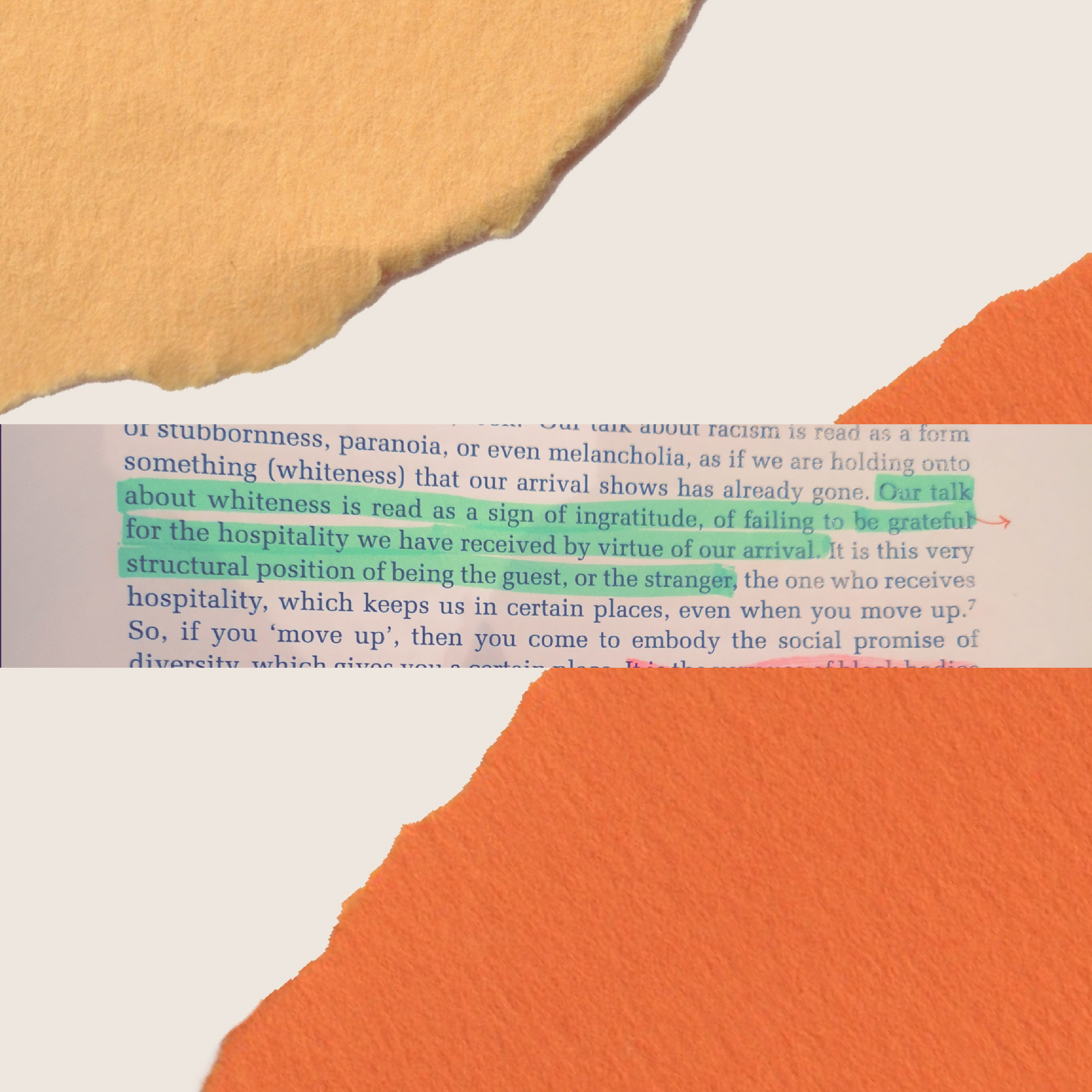
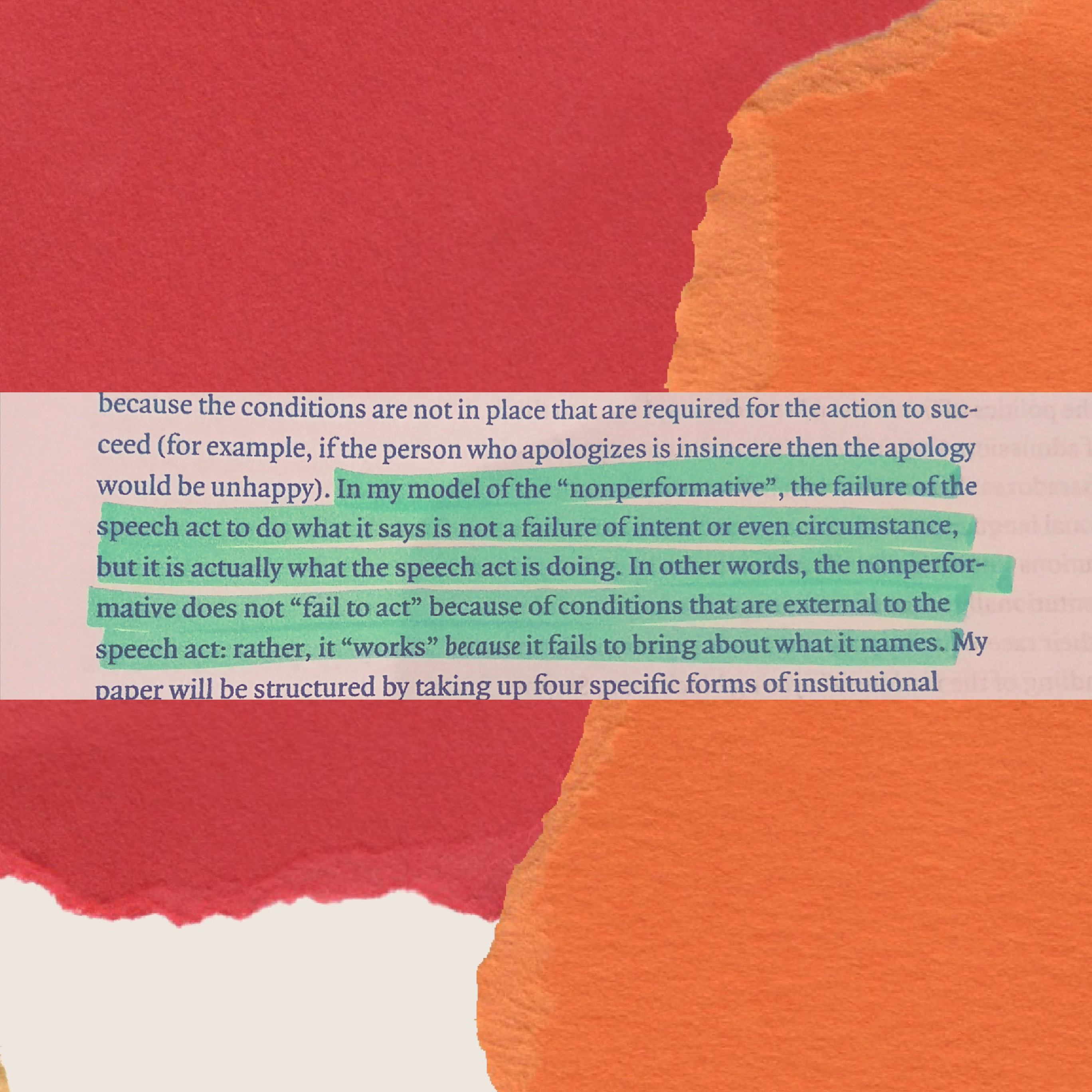
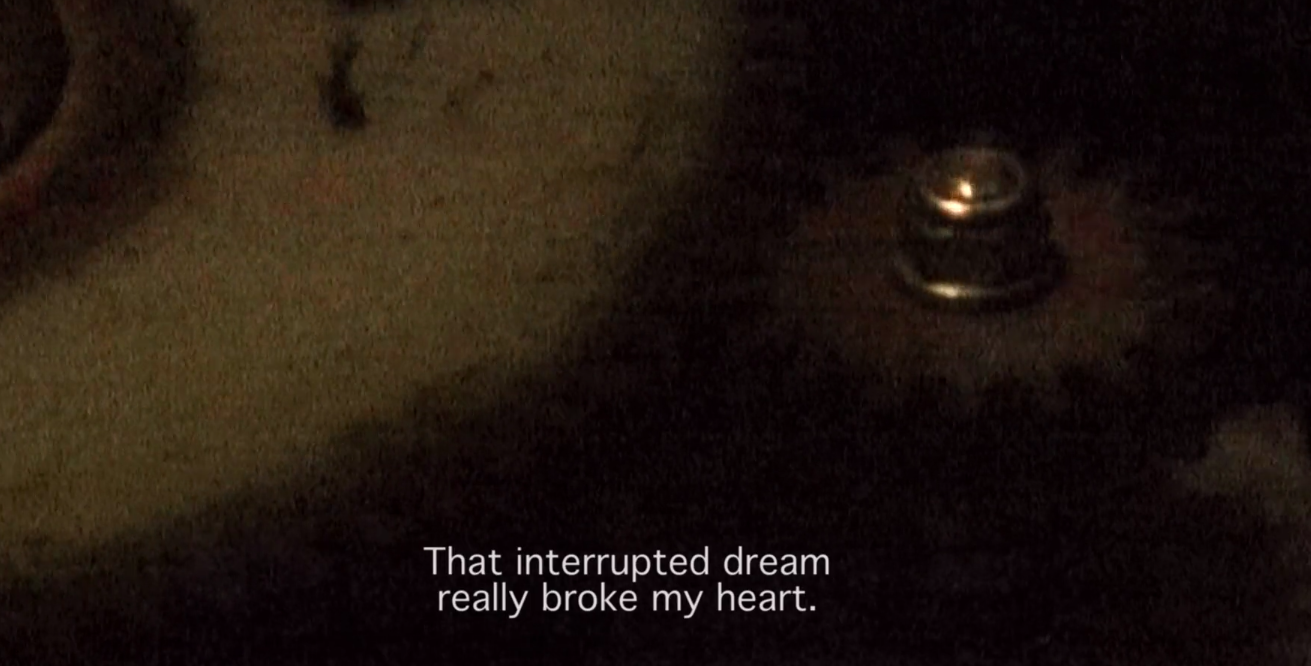
Stills/Gifs from Mati Diop's films Atlantiques (2009) and Atlantics (2019)
I've rewatched both of these films a lot over the past couple of weeks and it has made me think how history and memory can feel spectral at times but the image remains present, always.
- Ufuoma
An excerpt taken from, Tina Campt's Image Matters: Archive Photography and The African Diaspora
This was one of two books I selected, the other being a Kerry James Marshall book on his paintings. Both books have become essential to me and both books in different ways interrogate the production of Black images across the Black Atlantic.
- Ufuoma
"When you present yourself to yourself are you satisfied with that self?"
THAT
Something I think constantly about is the dispersed histories that are situated across the Black Atlantic.
Excerpts from Slavery's Metropolis by Rashauna Johnson
I have been going over and reading this book written by my old professor and thinking about the cross-generational histories of migration across the Black Atlantic and the Atlantic being a site of resistance, transformation, and bondage.
- Ufuoma
Belonging
"A sense of belonging is a human need, just like the need for food and shelter. Feeling that you belong is most important in seeing value in life and in coping with intensely painful emotions."
"A sense of belonging to a greater community improves your motivation, health, and happiness. When you see your connection to others, you know that all people struggle and have difficult times. You are not alone. There is comfort in that knowledge."
https://www.psychologytoday.com/gb/blog/pieces-mind/201403/create-sense-belonging
My father says he still sees and hears his grandmother in his head. He can still remember her words and advice. My grandfather, her first born son, says my side profile reminds him of her. I was given an English name. My father thought it would be too much to have an Iranian surname and first name. So they agreed on Olivia. A Shakespearian name to satisfy my mother, and a name similar to that of my great, great grandmother, Alavieh.
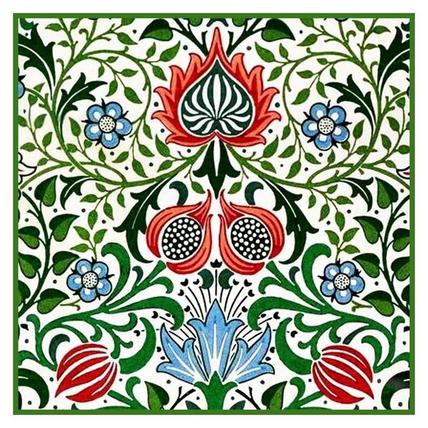
I love floral designs and colours. But no-one ever told me William Morris was inspired by Persian design. Beautiful things around me, but to be Iranian wasn't something I thought was beautiful growing up. I didn't feel beautiful. I can remember looking in the mirror when I was still in Primary School, and imagining I had blue eyes and blonde hair.
I can't go there. So I don't know if I am dark or fair. My dad says I would be known as "Sabzi" green. He says there isn't racism in Iran. But he also says his Afro-Iranian uncle left for Russia because he didn't feel he belonged. I would love to visit Khonom Bazourg's house.
Untitled/ ongoing
Cherelle Sappleton